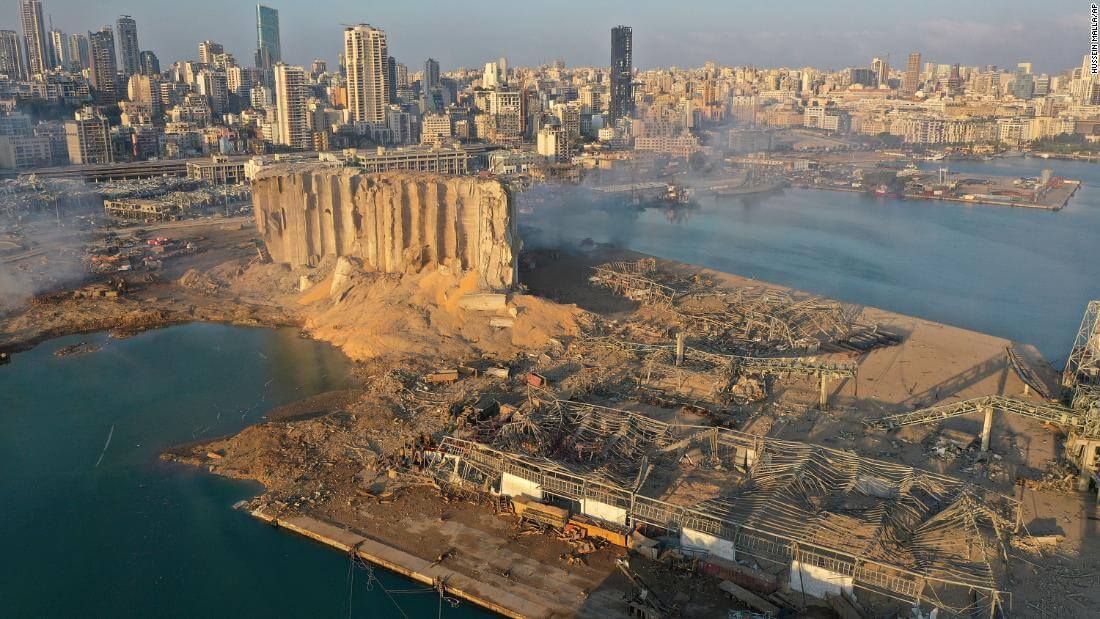After the massive explosion that destroyed a major part of capital city Beirut, Lebanese investigators have begun their probe into the incident. Officials have linked the cause of the blast to the presence of around 2,750 tonnes of the highly reactive chemical fertilizer, ammonium nitrate, which were reportedly confiscated and stored in a warehouse at the Port of Beirut for the past six years.
Investigators are now focusing on the possibility of government negligence in storing the explosive chemical. As they recuperate from the shock of the incident, residents of Beirut are also growing increasingly angry at state officials who allowed the chemical to be stored 100 metres away from residential areas. Reportedly, inspectors of the consignment had warned as recently as six months ago that if the confiscated chemicals were not moved they had the potential to “blow up all of Beirut”. The government has ordered for the house arrest of an undisclosed number of officials in charge of the port.
Further, media reports dating back to 2014 claim that a Russian vessel, the Rhosus, carrying a load of chemicals was impounded at the port after being deemed ‘unseaworthy’ after an emergency halt in the city. Former captain of the vessel alleged that Igor Grechushkin, the owner of the ship, had abandoned the vessel and its crew who were “held hostage” by Lebanese customs authorities.
As of the last count this morning, 135 deaths from the blast have been reported, with over 5,000 casualties. According to the governor of Beirut, Marwan Abboud, up to 300,000 people have suffered physical damages to their properties, leaving several homes uninhabitable. Dozens are missing and are feared as being buried under debris.
On Wednesday, Dr Manal Abdel Samad Najd, Lebanese Minister of Information, announced that the cabinet has adopted the recommendation of the Higher Defence Council to declare Beirut a disaster city. “A renewable two-week state of emergency will be declared in Beirut, and the highest military authority will immediately assume responsibility for maintaining security,” she said. She also said that the cabinet will be allocating funds to hospitals and adequate compensations to the “families of martyrs”.
Several governments have extended their support to Beirut in its recovery. French President Emmanuel Macron reportedly landed in the capital city this morning, being the first world leader to visit the city after the blast. Macron is set to meet “all political actors” including Prime Minister Hassan Diab and President Michel Aoun, to not only rally urgent aid for the city but also press the government for overdue reforms in the former French colony. Lebanon has been suffering a crippling economic crisis and border skirmishes that have led to months of instability and uncertainty, resulting in massive citizen protests.

